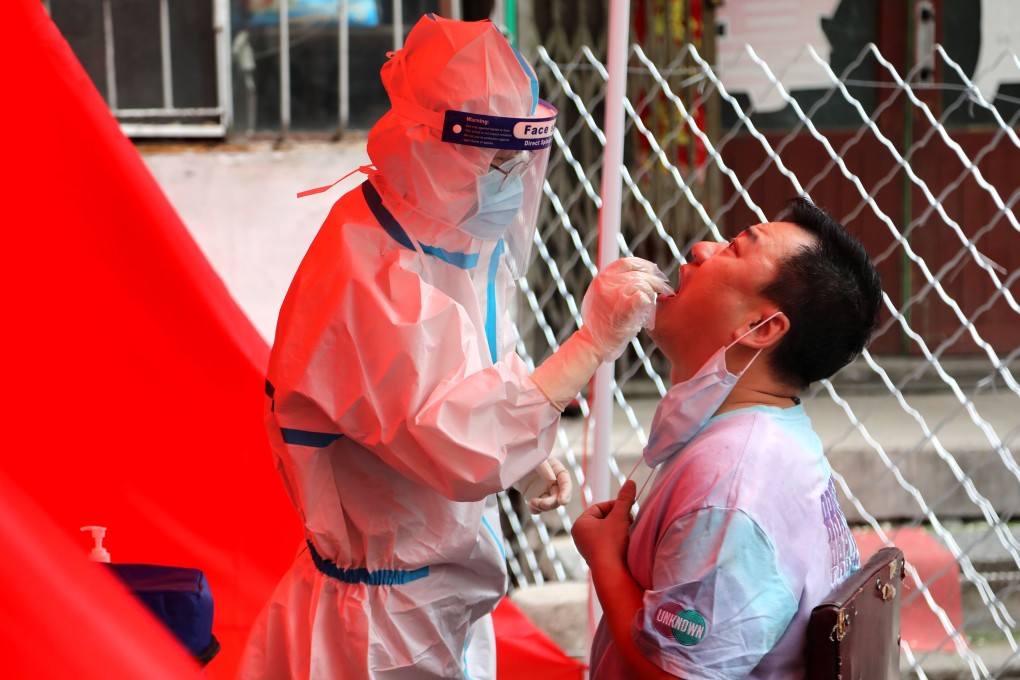Advertisement
‘Epidemic stopped’: results in from second Chinese city to do mass coronavirus tests
- In all, 19 asymptomatic cases found among the 650,000 people tested in Mudanjiang, authorities say
- Viral cultures reveal low level of infectiousness among those carriers
Reading Time:2 minutes
Why you can trust SCMP

A Chinese health expert helping oversee coronavirus control efforts in a northeastern Chinese city at the centre of an outbreak has declared the emergency over after mass testing revealed a handful of asymptomatic cases.
Authorities in Mudanjiang, Heilongjiang province, near the border with Russia tested more than 650,000 people in the city in the last week, becoming the second municipality in the country to test all of its residents for the coronavirus.
The city battled an influx of cases as Chinese nationals returned from Russia in April.
Advertisement
Mudanjiang mayor Wang Wenli said on Monday that only 19 asymptomatic cases were found in the thousands of nucleic acid tests.
The symptom-free carriers were aged between 5 and 70 and a total of 1,529 close contacts were traced, Wang said.
Advertisement
Sun Dianjun, director of a provincial panel overseeing the coronavirus control efforts, said: “Based on the nucleic acid testing results, I think the epidemic in Mudanjiang has stopped.”
Advertisement
Select Voice
Choose your listening speed
Get through articles 2x faster
1.25x
250 WPM
Slow
Average
Fast
1.25x